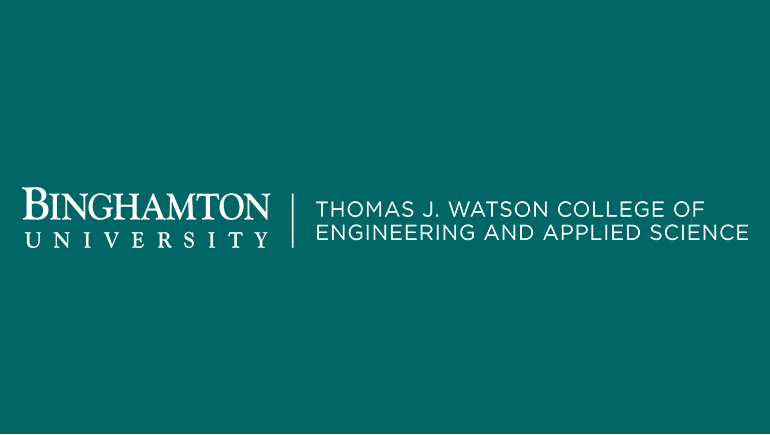Watson College: Binghamton University’s engineering and applied science school gets new name
Dean cites growth in enrollment, faculty, staff and research since 1983 founding

Binghamton University’s Thomas J. Watson School of Engineering and Applied Science is getting a new name.
Starting Aug. 17, it will be known as the Thomas J. Watson College of Engineering and Applied Science, which Dean Krishnaswami “Hari” Srihari said reflects the growth in students, staff, faculty and research funding over the past decade.
He pointed out that in Watson’s first year (1983-84), 242 students graduated from the school. In 2019-2020, as Watson School enrollments reached 3,272 students, Watson awarded 455 BS degrees, 406 master’s degrees and 40 PhDs. The college has set a goal to surpass 4,000 students by 2023.
The University’s Faculty Senate approved the name change in March, with unanimous support from Watson’s department chairs and University Provost Donald Nieman. The new name was first suggested in 2015 by a Watson School Strategic Planning Committee, led by Professors Douglas H. Summerville (chair of the Department of Electrical and Computer Engineering) and Kaiming Ye (chair of the Department of Biomedical Engineering).
U.S. News & World Report in 2020 ranked Watson’s graduate programs as #94 in the nation, and the Times Higher Education World University Rankings ranked the school among the top 200 around the globe.
“Students come to Watson College from all over the world and represent a wide range of backgrounds and interests,” Srihari said. “They graduate with broad-based skills and the entrepreneurial spirit to succeed in fields ranging from mechanical engineering to hospital operations to the law.
“Today, the college has more than 15,000 alumni who are employed at more than 3,000 employers across the globe, including at Fortune’s Most Admired Companies, the top IT companies based on revenue and Technology Review‘s most innovative companies.”
Transitioning to a college will allow Watson’s five departments — biomedical engineering, computer science, electrical and computer engineering, mechanical engineering, and systems science and industrial engineering — to be renamed as schools in the future.
“Transforming fast-growing departments into schools can further help both faculty and student recruiting, and make them stand out among their peers,” said Weiyi Meng, chair of the Department of Computer Science.
Summerville added: “I believe that ‘college’ carries a connotation that better reflects the scale of our unit, better reflects our place within Binghamton University, and better communicates the caliber of our research and programs to constituencies outside the University.”
Srihari credited research excellence and a cooperative spirit for pushing Watson College higher over the past decade.
“I am very proud of what our faculty, staff and students have accomplished during my tenure as dean. It is the Watson team’s dedication and diligence that that has helped us move forward together,” he said. “As Watson College, I am confident the school will continue to grow and thrive for decades to come.”
